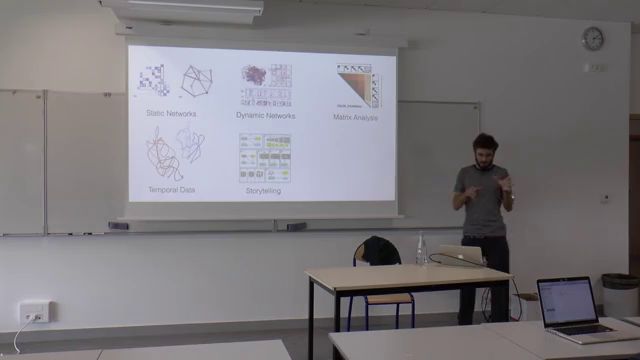Video
Interacting with Data: Creating Interactive Visualizations for Domain Scientists
Séminaire PolytechNantes présenté par Benjamin Bach http://benjbach.me/ @benjbach
Abstract: While networks are often used to represent data, they are among the most complex structures to understand; representing a natural phenomena such as social relationships, trading flows, or brain connectivity as a network requires powerful tools to make sense of the network topology and its attributes. While there are many quantitative statistics to measure a network, visualization provides the means for a higher-level understanding and hypothesis formulation.
This talk gives an overview of my previous work in the areas of visualizing dynamic networks, temporal data, and to approach a better understanding how to convey changes in a networks. While a visualization should work and convey as much information as possible without requiring to interact, most real-world problems require interaction to filter, change, adapt, search, or change perspectives on the data. The talk also discusses approaches to provide interactive visualizations to domain experts and how the use of visualizations in the wild can be facilitated.
Bio: Benjamin is a postdoctoral research fellow at Monash University, Australia. His research focuses on interactive information visualizations to help domain experts in different domains, including astronomy, history, archeology and neuroscience explore and present their data visually. Research in these areas includes dynamic and multivariate networks, temporal data, and story-telling techniques. Benjamin and has previous been a postdoctoral research at Microsoft Research—Inria Joint centre. He was a visiting scientist at the University of Washington, WA and Microsoft Research, Redmond. He obtained his PhD in 2014 from the Université Paris Sud, France. http://www.aviz.fr/~bbach/
01:17:15

